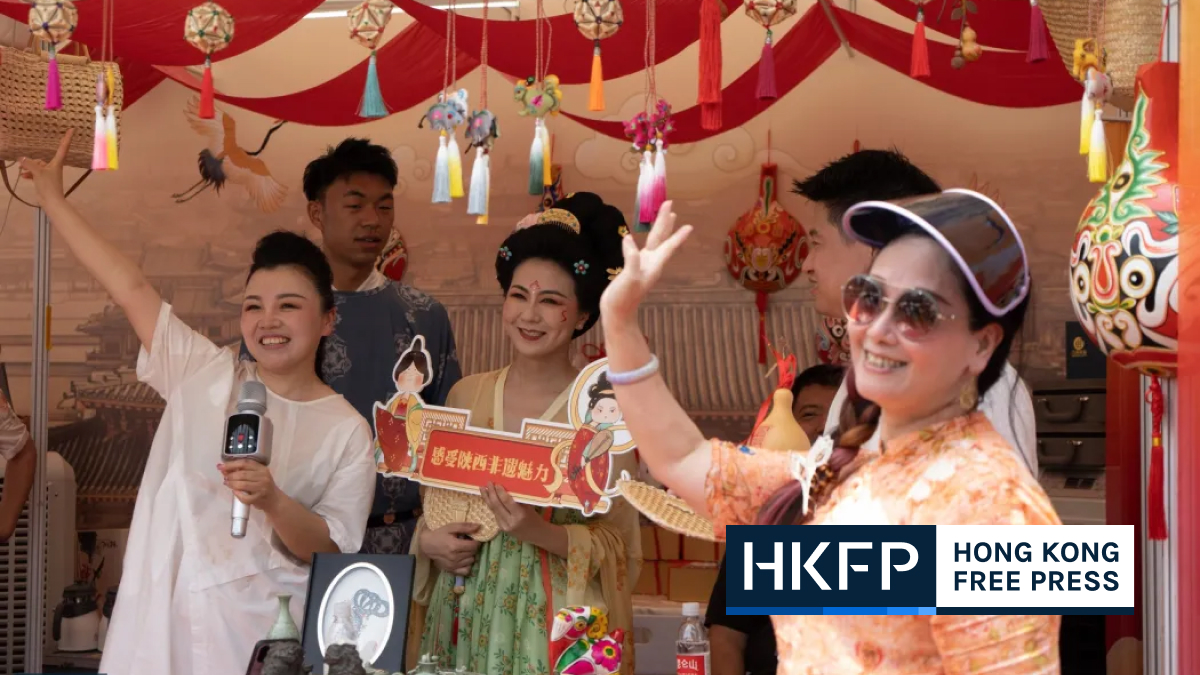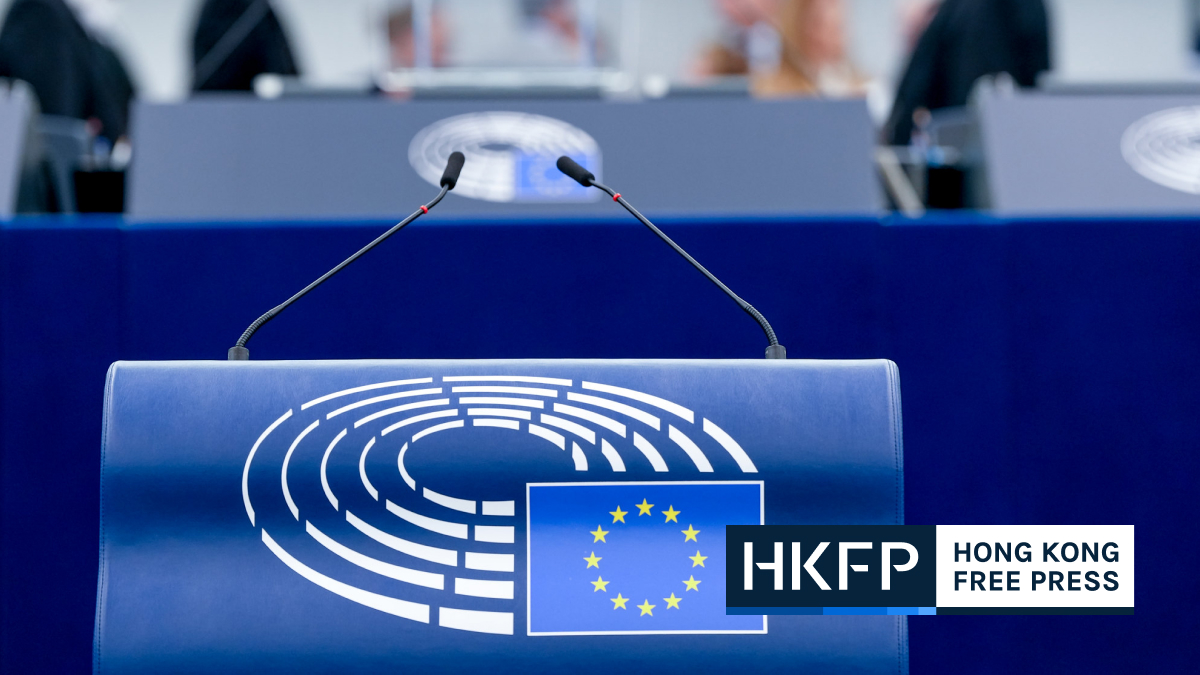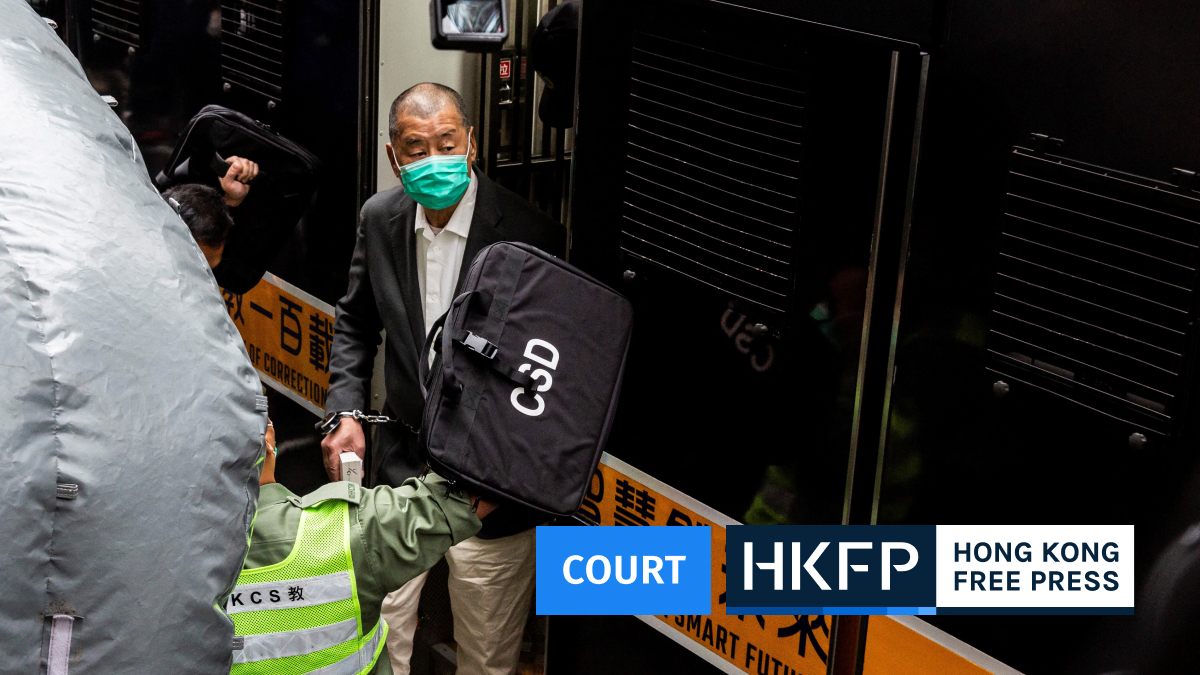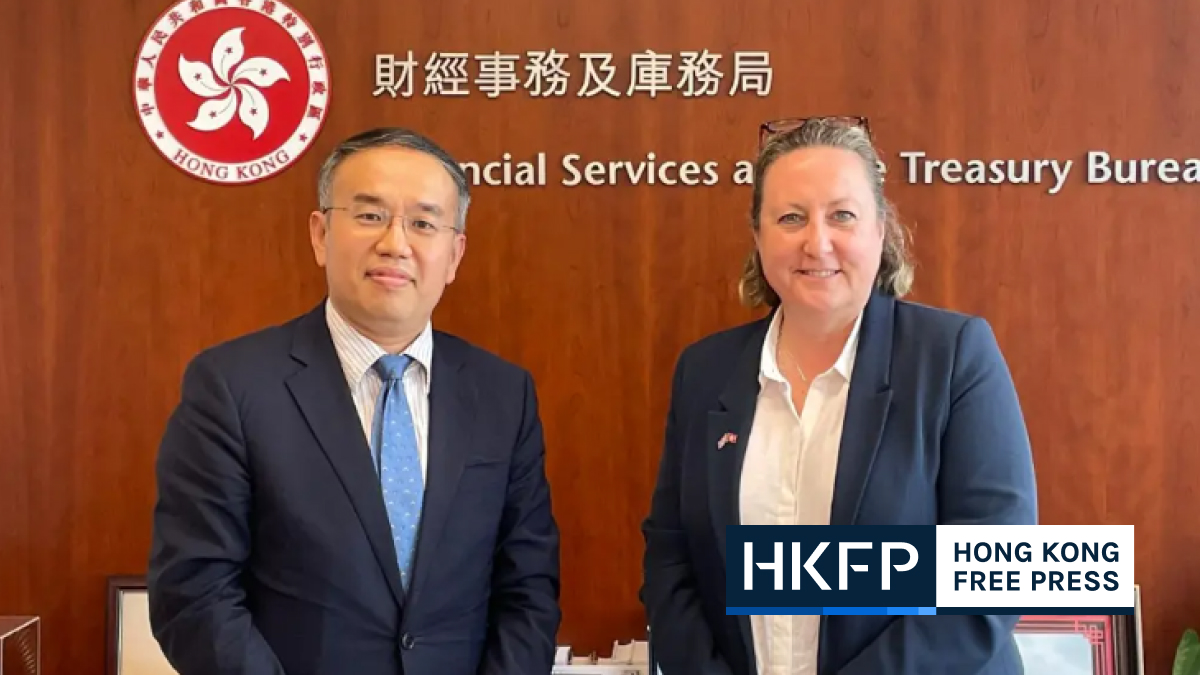Hong Kong ‘s human rights record worsened sharply between 2019 and 2020, according to a database compiled by an international team of researchers.
The Human Rights Measurement Initiative (HRMI) released its findings on its online “rights tracker” database on Thursday.

HRMI, a global project that tracks the human rights performance of around 200 countries, is hosted by the Motu Economic and Public Policy Research institute in New Zealand and has been operating since 2015.
Researchers found that people in Hong Kong faced arbitrary detention, while protesters and detainees were most at risk of ill-treatment and what they called torture.
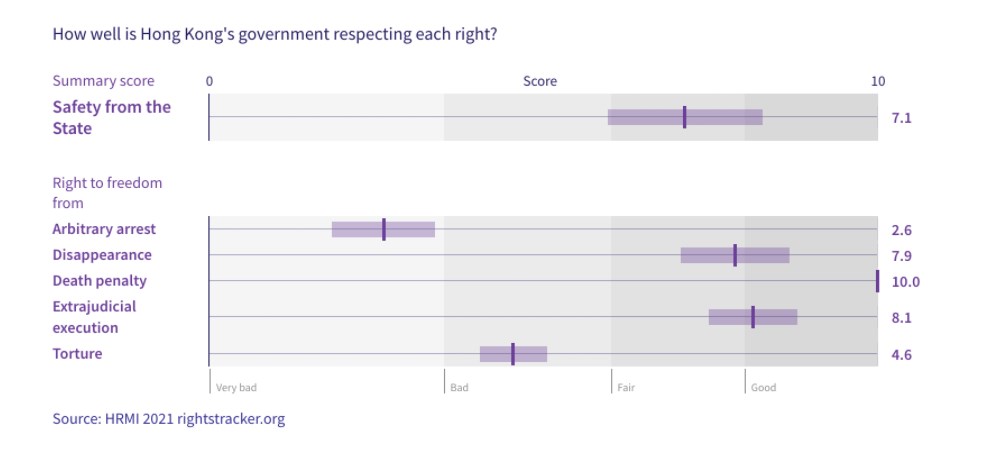
Hong Kong scored a mere 2.6 out of ten for freedom from arbitrary arrest, below Vietnam and Papua New Guinea.
Researchers surveyed 39 countries for the latest update, including eight in Asia. The tracker does not yet have enough information on civil and political rights to rank mainland China.
The team’s data also suggested that Hongkongers did not enjoy freedom of assembly, opinion and political participation last year during the Covid-19 pandemic, scoring 2.2 across these three rights on average, compared to 3.7 in 2019.

“In HRMI’s latest dataset you can see this in the sharp decline between 2019 and 2020 in respect for the empowerment rights (the rights to expression, political participation, and assembly and association) in Hong Kong” the organisation’s co-founder Anne-Marie Brook told HKFP.
The tracker is based on information gleaned from experts who monitor the human rights situation on the ground, such as lawyers, journalists and rights groups including Amnesty International and Human Rights Watch. Responses were collected from February to March regarding events that took place in 2020.
Researchers compiled data from 16 local experts for the findings on Hong Kong.
The organisation says it aims to provide “robust data” on states’ human rights records, tracking 13 rights including freedom from arbitrary arrest and torture, and the right of assembly, opinion and political participation.
The tracker provides new data on civil and political rights in 39 countries, and on economic and social rights for over 200 countries.
‘Rising authoritarianism’
The findings come as the city approaches one year since Beijing imposed a sweeping national security law in response to months of pro-democracy protests and unrest that broke out in June 2019.
“Watching events in Hong Kong over the past couple of years has been quite harrowing, and so I doubt that Hong Kong’s scores will come as a surprise to any Hong Kong watchers,” Brook said in a statement.
A total of 47 democrats are awaiting trial under the national security law over an unofficial primary election, with 36 of them in custody. Other veteran activists and former lawmakers are serving sentences over unauthorised assemblies in 2019.
“Unfortunately, the world is facing a threat of rising authoritarianism in many parts of the world, and one of the places where that threat has manifested very clearly in reduced freedoms for people, is in Hong Kong,” Brook told HKFP.

Prison welfare groups have campaigned for better cooling systems for detainees during the city’s sweltering summer heat. In all, more than 10,000 people have been detained in relation to the 2019 pro-democracy protests and unrest.
Brook added that the security law’s extrajudicial claim means it also influences how people talking about the city can exercise their freedom of expression even abroad: “We know that the provisions of the national security law apply to people outside of the borders of Hong Kong as well. This means that residents of countries all around the world, particularly people from Hong Kong, may be limited in their ability to express themselves freely anywhere,”
“All countries must now seriously think about the best way to fulfil their human rights obligations for those already living within their borders,” the economist warrned. “More generally, the international community cannot afford to sit back and assume that the Chinese Communist Party will not continue to seek to expand their influence globally.”
Support HKFP | Policies & Ethics | Error/typo? | Contact Us | Newsletter | Transparency & Annual Report | Apps
Help safeguard press freedom & keep HKFP free for all readers by supporting our team





















